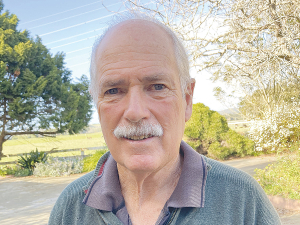Be more than just average statistics
Averages are a great mathematical tool and brilliant for hiding poorer performing results because they get dragged up by higher results.
 Herd Homes founder Tom Pow says the claim by some commentators that more cows will cause more greenhouse gas emissions is “a myth”.
Herd Homes founder Tom Pow says the claim by some commentators that more cows will cause more greenhouse gas emissions is “a myth”.
Twenty-three years on from founding the iconic company Herd Homes, Whangarei farmer Tom Pow still strongly believes that farming smarter rather than reducing stock numbers is New Zealand's answer to reducing greenhouse gas emissions.
Pow says the claim by some commentators that more cows will cause more greenhouse gas emissions is "a myth".
"This is another area where our industry has been too weak and gullible," Pow told Dairy News.
"We as farmers need to set the standards and conditions to go forward: get our farming scientists and advisers to increase production and stocking density while reducing greenhouse gasses."
Farmers won't agree to soft options, he says.
Pow says, when he invented he Herd Homes system with his wife Kathy, it was designed to meet or surpass current and future compliance demands and help generate greater returns.
"This is not just a green coating but a whole new method of farming," he says.
Before that, they tried all the conventional management options for alleviating the distress of cows and loss of production: sacrifice paddocks, wintering barns, standoff areas and feed pads with concrete, metal, chip, or sawdust.
Some of these measures overcame pugging problems but they were dissatisfied with them all as answers to the problems of dairying on low lying, heavy clay soils with buckets of rainfall.
They discovered the major reason for under performance of cows was exposure and lack of shelter.
Pow designed Herd Homes as a system to meet environmental and welfare demands while improving productivity.
He says getting cows off wet paddocks means effluent and urine are not easily leached into soil and waterways.
"Cows in the Herd Homes shelter have the dung and urine stored in basement bunkers, out of harm from rain, or flooding."
Herd Homes allows effluent to be stored under the shelter and recycled as a valuable farm nutrient.
"It starts with what home-grown crops would give the farmer the best yield and financial increase while using the effluent stored in Herd Homes as the fertiliser.
"Many older farms have farmed with or seen what natural cow manure and urine can do on their own farms, known as the wool shed block or the cowshed block.
"Now you can have the whole farm growing like that and no compliance problems.
"No fertiliser is as cheap as the captured effluent in the Herd Home basement. It's already on your property, so there's no cartage costs."
Pow says another benefit of the shelter is that it helps preventing over-grazing.
"The more grass leaves left on paddocks, the more sunshine the plant can absorb. What follows is then the need of more mouths to eat the extra pasture grown."
He says cows are traned to eat supplements while in Herd Homes. This would make it easier for farmers to introduce methane inhibitors to their cows.
Pow believes there's no need to reduce cow numbers.
"The idea that dumbing down farms to a point so low that farming is dying is as stupid as believing that just one silver bullet will be the answer. No, it will be a way of farming with many options - the step-change group of options will come."
The Government's chief science advisor, Dr John Roche says the key objective for the science sector in the coming year is bedding down the reforms which sees the merger of the previous entities.
Hawke's Bay apple grower Taylor Corporation says a standout 2026 season, coming after a few difficult years, is boosting optimism among growers.
Horticulture New Zealand (HortNZ) has added its perspective to numerous primary sector voices urging the Government to strengthen its draft legislation to replace the Resource Management Act (RMA).
The Commerce Commission has finalised new information disclosure requirements for local councils and water organisations that deliver water supply and wastewater services.
Beef + Lamb NZ (B+LNZ) is calling for significant changes to the Government’s reforms to the Resource Management Act (RMA).
NZPork says the Government needs to strengthen its proposed planning laws to ensure New Zealand's pig farmers can continue to produce pork.
OPINION: Staying with politics, with less than nine months to go before the general elections, there’s confusion in the Labour…
OPINION: Winston Peters' tirade against the free trade deal stitched with India may not be all political posturing by the…